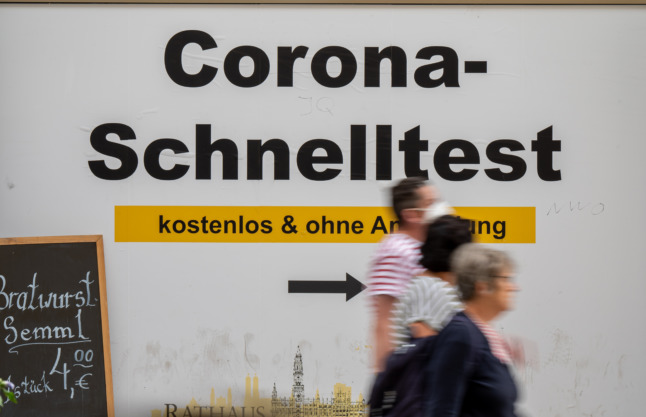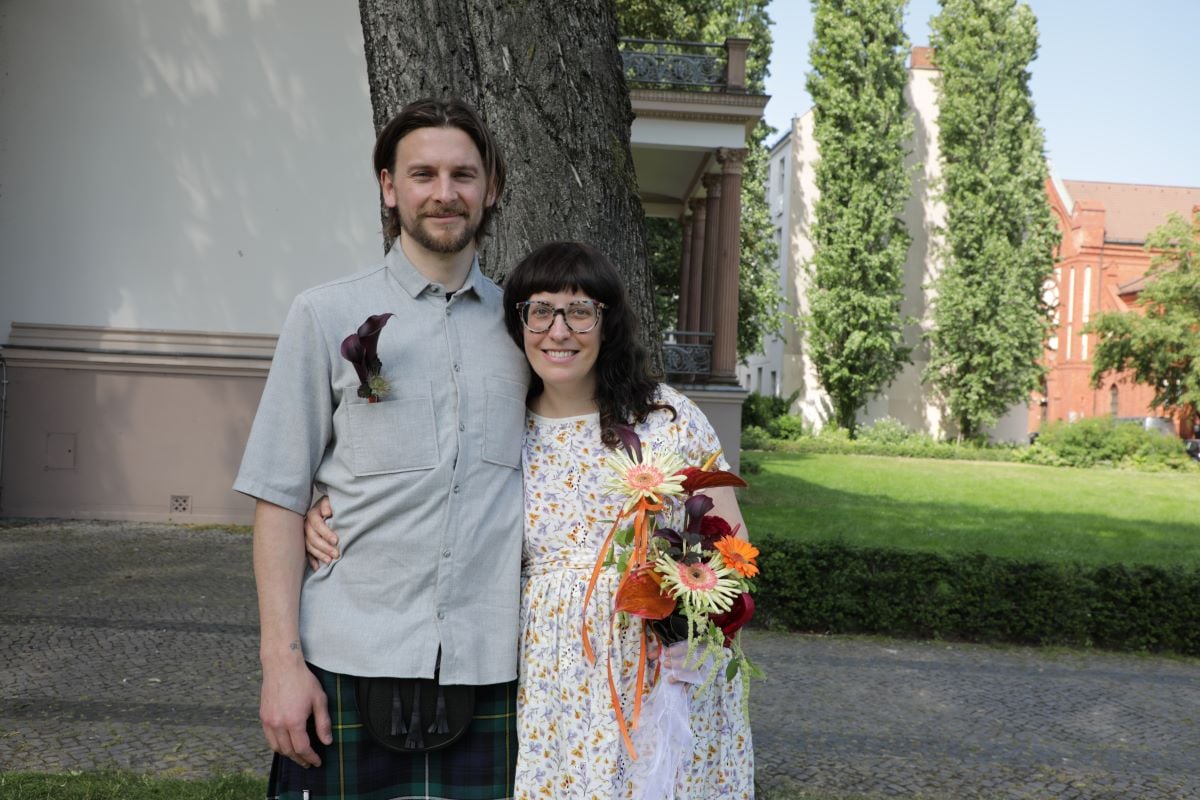End of free Covid rapid tests
The German government is planning to severely restrict access to free Covid rapid tests this month in a move aimed at encouraging more people to get vaccinated.
From October 11th onwards, people eligible for the Covid vaccination – but who choose not to get jabbed – will have to pay for the antigen tests from their own pocket. They are likely to cost around €15 to €20.
READ ALSO: Who will still get free Covid tests in Germany
As Germany requires that people show proof of vaccination (geimpft), recovery from Covid (genesen) or a negative test (getestet) – known as the 3G rule – to enter many indoor spaces like restaurants and cinemas, it could get expensive for those who choose not to get vaccinated.
Some parts of Germany are also only allowing vaccinated or recovered people to enter places like bars and restaurants – but only if the owner of the venue opts for this model.
Meanwhile, vaccinated people who travel abroad and usually get a free rapid test will no longer have that chance.
Up to this point, the cost of antigen Covid tests have been covered by the state.

Tax return deadline
Don’t forget – the new deadline for self-submitted tax returns is coming up soon.
The previous deadline of July 31st this year was extended by three months due to the pandemic. So those who submit their own tax returns – like freelancers – have to get their paperwork to the tax office by October 31st 2021.
People who prepare their tax return with a tax advisor have a deadline of May 31st, 2022.
The sick note goes digital
The yellow certificate – or gelbe Krankenschein – which doctors usually use to declare employees in Germany unfit for work, is getting binned.
Instead, doctors will be able to send the sick note electronically to health insurance organisations. This change will come into force from October 1st, and all medics will have to get on board by the end of the year.
However, employees will for the moment still have to hand in a paper incapacity to work certificate to their boss.
But this will be a thing of the past soon. By July 1st, 2022 it will also be handled digitally by doctors and health insurers. We’ll keep you posted.
As we reported in August, doctors in Germany can issue sick notes by telephone for some conditions until the end of the year.
READ ALSO: The 10 rules you need to know if you get sick in Germany
Reunification Day
Germany will celebrate Reunification Day on Saturday, October 3rd, marking 31 years since east and west came together.
This is a public holiday in Germany but sadly as it falls on a Sunday, most people won’t get a day off for it.
New law on fair consumer contracts
From October 1st, the first part of the new Fair Consumer Contracts Act will come into force as part of the government’s aim to strengthen the rights of consumers.
The law is intended to stop companies from tricking people into agreeing contracts over the phone, as well as providing fairer rules for overlong and complicated contract terms and notice periods. It concerns things like energy supply contracts, contracts for fitness studios, newspaper subscriptions or contracts concluded online.
As part of the changes, gas and electricity contracts will have to be concluded in writing from October onwards – not just over the phone. For a contract to be effective, it must be “in text form”, for example by email, SMS or as a letter or fax, says the German government.
READ ALSO: Why households in Germany face even higher electricity bills

The act also says that companies are no longer allowed to use their general terms and conditions to coerce their customers into assigning claims to money. This would make it possible, for example, to claim for money back in the event of flight cancellations instead of having to settle for a voucher.
Meanwhile, contracts with a minimum term of up to two years will remain possible in future. But consumers should have much more freedom in choosing and structuring their contracts and benefits, the German government says. To protect consumers, stricter rules will apply to termination in the event of an automatic contract extension for an indefinite period. Customers will be able to terminate monthly in these cases from March 2022.
Price comparison rule at service stations
One for the drivers: from October 1st, service stations in Germany with more than six multi-product dispensers will be required to show a comparison of the prices of their available energy sources.
Consumers will then be able to see at a glance what the costs are for different types of fuel per 100 kilometers. The price comparison overview should be displayed either at gas pumps or on the sales floor. The different units used by shops (liters/ kilograms/ kilowatt hours/ cubic meters) have so far made a direct comparison of costs difficult.
Stalkers to be punished more severely
Germany is coming down harder on people who commit stalking offences from October 1st.
Anyone who regularly stalks or repeatedly harasses another person may end up in court sooner than before under the tightened laws.
The penalties will also be tougher: previously a maximum of three years’ imprisonment could be imposed for stalking, but now five years’ imprisonment is now also possible. Furthermore, from October, digital cyberstalking will also be expressly punishable – for example, if someone accesses their victim’s social media accounts or movement data.
Application deadline for bridging assistance III extended until end of year
For companies affected by the Covid pandemic, financial support aid is being extended. Bridging Aid III Plus has been extended to the end of December. The assistance was due to expire at the end of September.
Companies with Covid-related sales losses of at least 30 percent are eligible to apply.
The Restart Assistance Plus for solo self-employed people will also be extended. For the period from October to December, the solo self-employed who are struggling due to Covid can receive additional support of up to €4,500 from the federal government.
The so-called “Restart Premium,” which was intended to ease the transition from lockdown to reopening, will not be continued.
You get an extra hour of sleep or partying
It’s hard to believe we’re already heading into the last part of the year, but here we are.
During the night from Saturday October 30th to Sunday October 31st, clocks in Germany will be set to winter time. At 3am the clock will go back one hour, back to Central European Time (CET).
The good news is that we all get an extra hour of sleep. The bad news is that it’s going to get darker earlier in the evening.




 Please whitelist us to continue reading.
Please whitelist us to continue reading.
Member comments